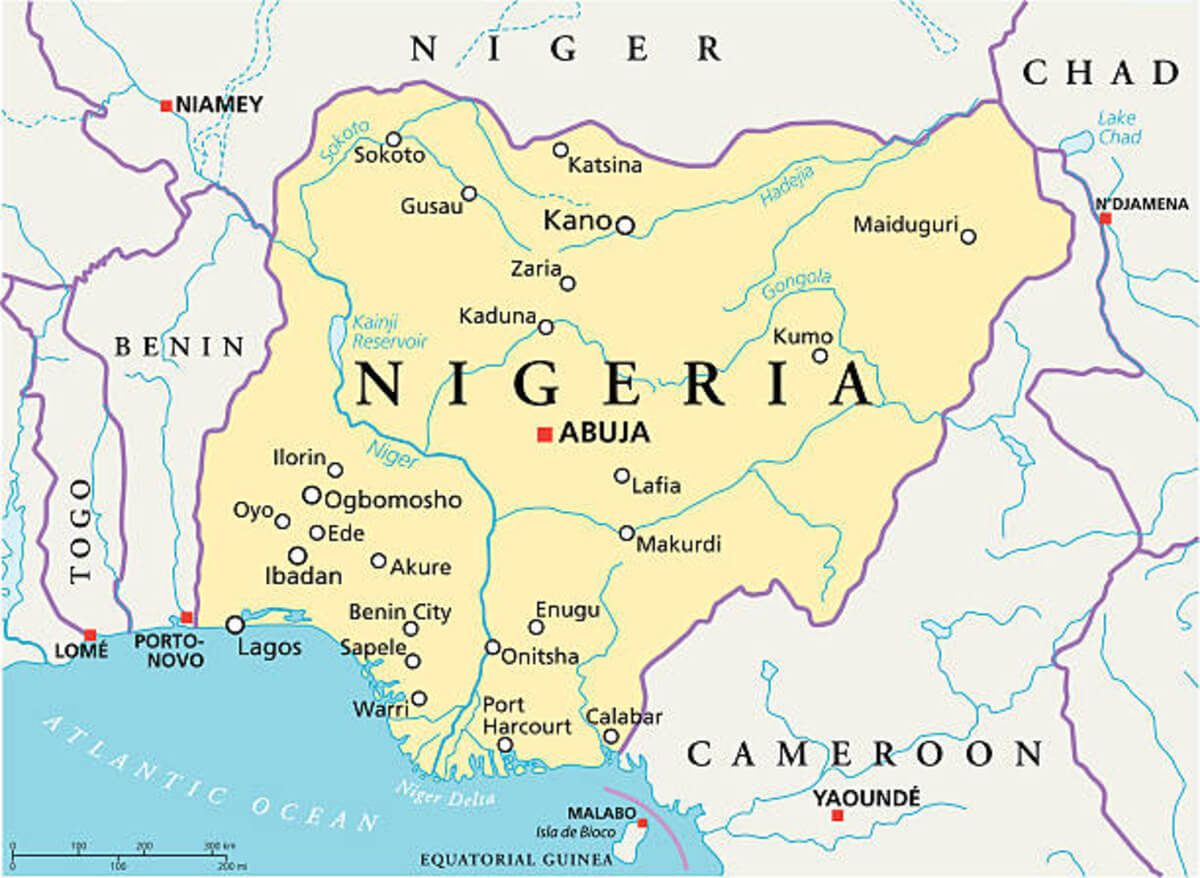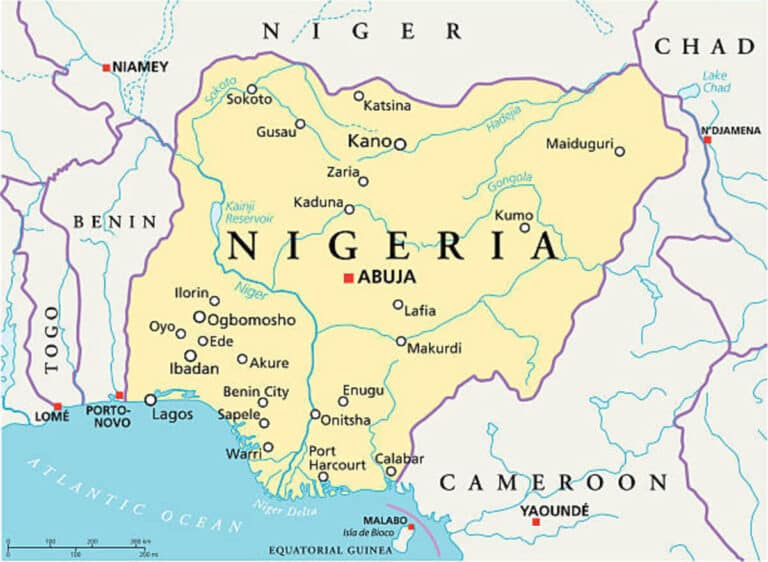Problems of Nigeria Federalism
Federalism is a system of government in which power is divided between a central authority and constituent political units. In a federal system, the central government and the regional governments share power, with each level of government having its own sphere of authority.
This type of political structure is often used in countries that are made up of smaller regions or states, such as the United States, Canada, and Australia.
Federalism in Nigeria refers to the system of government in which power is divided between the federal government and the state governments. Nigeria is a federal republic, with a President as the head of state and a multi-tier system of government.
Advertisement
Also, check out All You Need to Know about the Federal Civil Service Commission.
The Nigerian Constitution divides powers between the federal government and the 36 states, with the federal government having authority over certain issues such as foreign affairs, defense, and currency, while the states have authority over issues such as education, healthcare, and local government.
However, the federal government of Nigeria has more power than the states, and there have been tensions between the federal government and the states over issues such as resource allocation and revenue sharing.
In addition, the central government has been accused of undermining the autonomy of state governments and overstepping its constitutional bounds.
In recent years, there have been calls for a more decentralized and truly federal system of government in Nigeria, as a way to address issues of inequality and underdevelopment in the country.
Advertisement
The three types of federalism in Nigeria
There are different ways to categorize the types of federalism that have existed in Nigeria since it became a federation in 1954, but one common classification is based on the degree of centralization or decentralization of power and the level of autonomy of the states. Three types of federalism in Nigeria are:
Unitary federalism
This is a type of federalism in which the central government has a significant amount of power and the states have little autonomy.
This type of federalism was prevalent in Nigeria during the early years of independence, when the federal government had complete control over many aspects of government, including the allocation of resources, and the states were seen as mere administrative units.
Cooperative federalism
This type of federalism is characterized by a more balanced distribution of power between the central government and the states, and a greater degree of cooperation and consultation between the two levels of government.
This type of federalism was more prevalent during the 1980s and 1990s when the states were given more autonomy and a greater say in the allocation of resources.
Fiscal federalism
Fiscal federalism is the type of federalism that is based on the financial autonomy of the states and local government, the state government is in charge of its own resources, and the federal government only intervenes when necessary.
This type of federalism aims to ensure that states and local government have the resources they need to provide services to their citizens.
It is important to note that Nigeria has not had a consistent federal system as it has undergone many changes over the years and it is still evolving.
Problems of these types of federalism
Each type of federalism in Nigeria has its own challenges, which can affect the functioning of the government and the well-being of the citizens. Here are some of the main challenges of each type of federalism in Nigeria:
Unitary federalism
One of the main challenges of unitary federalism is that it can lead to a lack of accountability and responsiveness on the part of the government.
The central government has too much power and can make decisions without considering the needs and interests of the states, which can lead to dissatisfaction and resentment among the states.
This can also lead to the underdevelopment of the states and the marginalization of certain regions.
Cooperative federalism
The main challenges of cooperative federalism are that it requires a high level of trust, cooperation and coordination between the central government and the states. If this cooperation is lacking, then it can lead to conflicts and delays in decision-making.
Additionally, there is a risk of some states being more powerful than others and this can lead to inequality among the states.
Fiscal federalism
One of the main challenges of fiscal federalism is that it requires a reliable and transparent system of resource allocation and revenue sharing.
If this system is not in place, then there can be unequal distribution of resources among the states, which can lead to disparities in development and service delivery.
Additionally, states need to have the capacity to effectively manage their resources and make the best use of them.
It is also worth noting that for any type of federalism to be successful, there needs to be a strong and independent judiciary that can interpret the constitution and resolve disputes between the federal and state governments. Furthermore, it should also be based on a culture of democracy, transparency, and accountability.
The impact of federalism on the Nigerian economy
Federalism can have both positive and negative impacts on the Nigerian economy. On one hand, federalism can promote economic growth and development by allowing the states to have more autonomy in making economic decisions and managing their resources.
This can lead to more diversity and competitiveness among the states, as well as more opportunities for investment and trade.
On the other hand, federalism can also create economic challenges for Nigeria. One of the main challenges is the unequal distribution of resources and wealth among the states, which can lead to disparities in development and poverty.
Additionally, the lack of cooperation and coordination between the federal and state governments can lead to inefficiencies and delays in decision-making, which can also affect the economy.
The current system of revenue allocation in Nigeria is also a big challenge, as it is heavily dependent on the federal government’s allocation of funds to the states, which can lead to inefficiency, corruption, and a lack of accountability.
The over-reliance on oil revenue and the lack of diversification of the economy are also major challenges that affect the Nigerian economy.
In order for federalism to have a positive impact on the Nigerian economy, it is important for the government to implement policies and systems that promote cooperation and coordination between the federal and state governments, as well as ensure a more equitable distribution of resources and wealth among the states.
Additionally, it is important to diversify the economy, focus on good governance, transparency and accountability, and improve the business environment to attract foreign investment.
Also, check out Nigerian Airforce Recruitment Training.
The pros and cons of federalism in Nigeria
Federalism in Nigeria, like any other system of government, has its own advantages and disadvantages. Here are some of the main pros and cons of federalism in Nigeria:
Pros
- It allows for the division of powers and responsibilities between the federal and state governments, which can promote more effective and efficient government.
- It can lead to more diversity and competitiveness among the states, as well as more opportunities for investment and trade.
- It can also lead to more autonomy and self-government for the states, which can promote a sense of ownership and responsibility among the citizens.
- By giving more autonomy to states and local government, it can lead to more responsive and accountable government.
- It can also promote peaceful co-existence among the different ethnic and cultural groups in the country.
Cons
- It can lead to unequal distribution of resources and wealth among the states, which can lead to disparities in development and poverty.
- The lack of cooperation and coordination between the federal and state governments can lead to inefficiencies and delays in decision-making, which can also affect the economy.
- Overreliance on the federal government for funding can lead to inefficiency, corruption, and a lack of accountability.
- The current revenue allocation formula can lead to unequal distribution of resources among states.
- It can also lead to the overstepping of constitutional bounds by the central government.
It is important to note that federalism is a complex system of government and its effectiveness depends on many factors, including the political culture, the quality of leadership, the level of trust and cooperation among the different levels of government, and the strength of institutions. In the case of Nigeria, federalism is still evolving and there are ongoing discussions and debates about how to improve it and make it more effective.
Final Notes on Problems of Nigeria Federalism
In conclusion, federalism in Nigeria is a complex and evolving system of government that has both advantages and disadvantages.
While it allows for the division of powers and responsibilities between the federal and state governments, it also has led to challenges such as unequal distribution of resources and wealth among the states, lack of cooperation and coordination between the different levels of government, overreliance on the federal government for funding, and issues with the current revenue allocation formula.
Furthermore, the federal government has been accused of undermining the autonomy of state governments and overstepping its constitutional bounds. The over-reliance on oil revenue and the lack of diversification of the economy are also major challenges that affect the Nigerian economy.
To address these problems, it is important to implement policies and systems that promote cooperation and coordination between the federal and state governments, as well as ensure a more equitable distribution of resources and wealth among the states.
Additionally, it is important to diversify the economy, focus on good governance, transparency and accountability, and improve the business environment to attract foreign investment.
A strong and independent judiciary, as well as a culture of democracy, transparency, and accountability are also key elements that need to be in place for federalism to be successful.
Before you go, check out Investing in Nigeria Treasury Bills.







One Comment
Comments are closed.